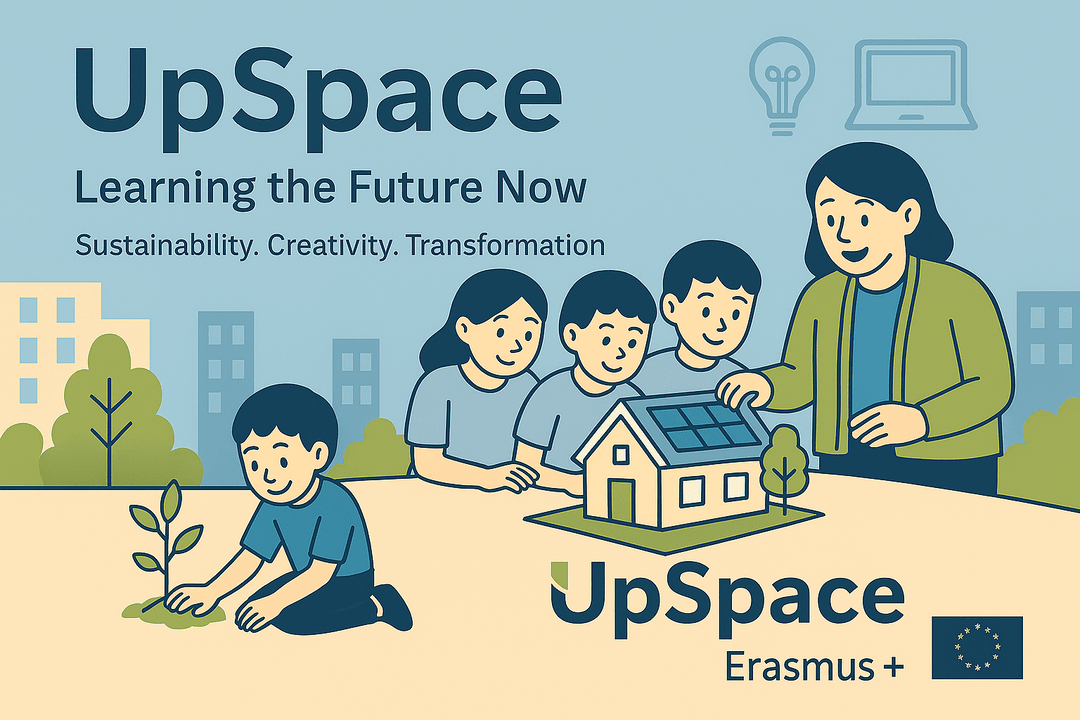UpSpace brings together a group of partners — schools, NGOs, and an IT company — from four European countries. This structure reflects both geographical diversity and a mix of practical, pedagogical, and technical expertise. The consortium is designed to develop strong educational content and also to ensure it is piloted, implemented and sustained across school systems and national contexts.
The partnership combines:
- Schools engaged in environmental, creative, and interdisciplinary learning
- Non-governmental organisations experienced in education innovation, sustainability, and inclusion
- An IT company specialised in building digital platforms and managing communication for EU projects
Together, we as partners ensure that the project will be practical, inclusive, and technically innovative. We bring together teachers, students, local communities, and digital tools, and create a shared educational space, both online and offline, in the classroom and outside of it.
Partners in the Consortium
1. CESIE (Italy) – Project Coordinator
A well-established non-profit organisation based in Palermo, CESIE coordinates the UpSpace project and brings extensive experience in managing EU education and sustainability projects. It leads WP1 (Project Management) and WP4 (Mainstreaming SDGs into education), ensuring the strategic and pedagogical coherence of the project.
2. Appworks DOO (Serbia)
An IT and digital communication company with experience in EU project platforms and app development. Appworks leads WP5 (Communication and Sustainability), develops the e-learning platform, designs the project’s visual identity, and supports technical delivery.
3. Stimmuli for Social Change (Greece)
A non-profit organisation based in Thessaloniki focused on educational innovation and participatory methods such as design thinking. Stimmuli leads WP2 and contributes to co-designing and piloting the Future-Oriented Curriculum for students.
4. Blended Learning Institutions Cooperative (blinc eG, Germany)
An interdisciplinary cooperative from Göttingen, blinc specialises in competence-oriented learning, validation, and sustainability-focused education. It leads WP3 (Implementation of upcycling workshops and urban regeneration labs) and provides methodology for competence tracking.
5. Istituto D’Istruzione Superiore Einaudi Pareto (Italy)
A secondary technical and vocational school in Palermo with a strong focus on ICT, business, and sustainable development. The school contributes to piloting both the teacher and student curricula and supports the local dissemination and final event in Italy.
6. Mihailo Petrović Alas School (Serbia)
A lower secondary school from Belgrade, known for creating a cooperative and inclusive environment. It contributes to the piloting of learning activities, local stakeholder engagement, and national dissemination.
7. 5th Gymnasium of Thessaloniki (Greece)
A secondary school with a long tradition in environmental and human rights education. The school plays a key role in implementing school-level activities and contributes to teacher and student mobilisation for the Greek pilot.
8. Förderverein RUZ Reinhausen e.V. (Germany)
An environmental education centre based in Gleichen-Reinhausen, with over 25 years of experience in sustainable and nature-based learning. It supports the implementation of student projects and environmental workshops in Germany.
